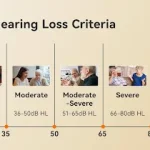Introduction to Pennsylvania’s Medical Marijuana Program
The Pennsylvania Medical Marijuana Program was established by Act 16 of 2016, providing regulated, legal access to medical cannabis for patients diagnosed with qualifying medical conditions. Managed by the Pennsylvania Department of Health (DOH), the program ensures patient safety, consistent quality, and responsible distribution of medical cannabis.
Historical Background and Legislation
In 2016, Governor Tom Wolf signed Act 16, officially legalizing medical marijuana in Pennsylvania. The program began sales in February 2018, initially permitting only non-smokable products like oils, tinctures, and capsules. Later in 2018, the legislation expanded to include dried cannabis flower specifically for vaporization.
Qualifying Medical Conditions
Patients diagnosed with any of the following medical conditions qualify for enrollment:
- Cancer
- Epilepsy
- Glaucoma
- Multiple Sclerosis (MS)
- HIV/AIDS
- Crohn’s Disease
- Parkinson’s Disease
- Sickle Cell Anemia
- Autism Spectrum Disorder
- Post-Traumatic Stress Disorder (PTSD)
- Chronic or Intractable Pain
- Anxiety Disorders
- Neuropathies (nerve pain)
- Tourette Syndrome
- Terminal Illness (with a prognosis of six months or less)
Patient Enrollment Process
To become eligible for medical marijuana in Pennsylvania, individuals must apply for an active PA cannabis card:
- Be a resident of Pennsylvania.
- Obtain a certification from a DOH-licensed practitioner who has completed required medical marijuana training.
- Verify a qualifying medical condition and demonstrate the therapeutic benefit of cannabis.
- Register with the DOH Medical Marijuana Registry.
- Pay a $50 application fee to receive a medical marijuana ID card.
Dispensaries and Available Products
As of early 2025, Pennsylvania has approximately 176 dispensaries serving over 446,000 active patients. Available medical cannabis products include:
- Dried cannabis flower (vaporization only)
- Cannabis oils
- Tinctures
- Capsules and pills
- Edibles
- Topical creams and gels
- Vape cartridges and concentrates
Regulatory Oversight
The DOH maintains rigorous oversight by:
- Operating electronic registries tracking patients, caregivers, and practitioners.
- Utilizing Electronic Tracking Systems to monitor all cannabis transactions.
- Conducting regular inspections and audits of licensed dispensaries and cultivation facilities.
Recent Developments and Legislative Updates
Recent legislative initiatives, such as Senate Bill 33, have been introduced to enhance oversight, expand patient protections, permit limited home cultivation, and clarify patient rights regarding firearm ownership and employment.
MMJ.com Evaluation Services for Pennsylvania Patients Comprehensive Eligibility Assessments
MMJ.com offers both virtual and in-person consultations to thoroughly evaluate patient eligibility based on Pennsylvania’s established qualifying conditions.
Practitioner Certification
MMJ.com connects patients directly with DOH-certified PA cannabis practitioners who provide official evaluations and certifications, simplifying the entire process and minimizing delays.
Patient Registration Support
Our experienced specialists guide patients through the DOH Medical Marijuana Registry application process, ensuring accurate submission, thorough documentation, and efficient fee payment.
First-Time Patient Education
MMJ.com supports new patients by offering detailed educational resources, dispensary coordination, and personalized guidance on cannabis products, appropriate dosage, and safe consumption practices.
Caregiver Assistance
We provide comprehensive support for caregivers, including registration guidance, appointment coordination, and compliance assistance to ensure smooth caregiving experiences.
Annual Renewal and Compliance Services
MMJ.com simplifies the renewal process for Pennsylvania medical marijuana cards by facilitating timely re-certifications and helping patients remain compliant with evolving state regulations.
Patient Advocacy and Education
MMJ.com actively engages in patient education regarding legislative updates, patient rights, and changing legal landscapes, ensuring patients remain informed and protected.
Accessible Patient Resources
Our secure, 24/7 online patient portal provides extensive resources, including dispensary locations, product and dosage guides, frequently asked questions (FAQs), and timely updates about Pennsylvania’s medical marijuana program.
Conclusion
Pennsylvania’s medical marijuana program prioritizes patient accessibility balanced with robust regulatory oversight. MMJ.com significantly enhances patient experiences through comprehensive services, educational resources, and ongoing support, enabling confident navigation of medical cannabis treatment by a state-certified PA marijuana doctor.







